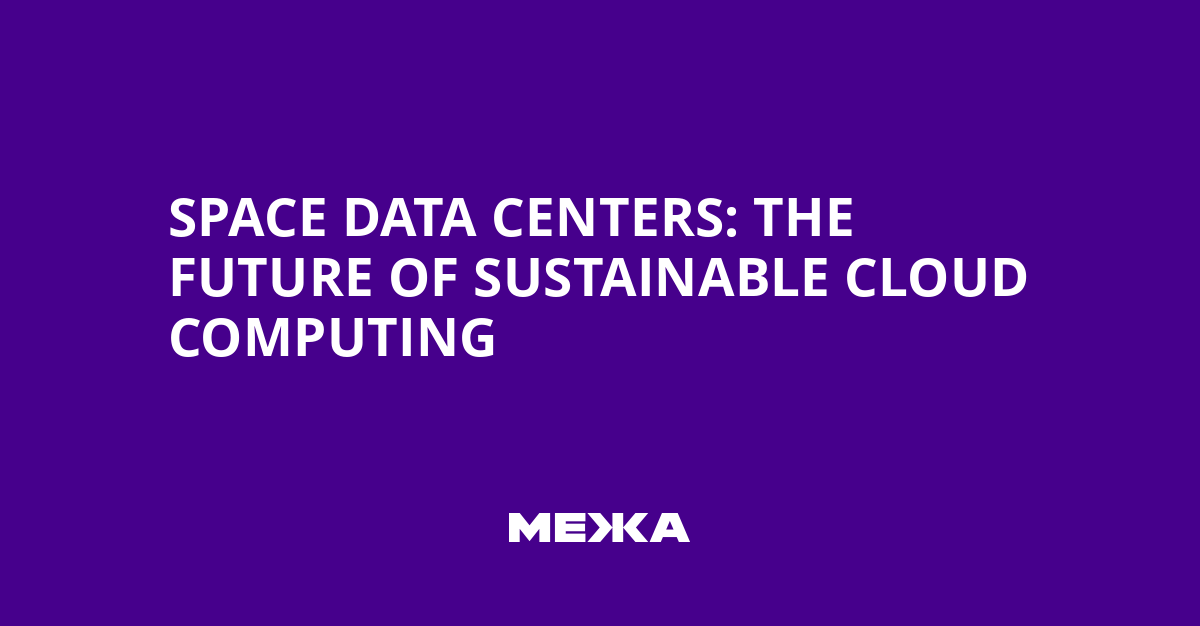Gradual progress in the field of artificial intelligence is fueling demand for data centers. Such data stores require significant land areas and a lot of energy, leading to rising CO2 emissions. According to Goldman Sachs, demand for data-center energy could increase by 165% by 2030. Some projects operate on renewable sources or use on-site energy generation, but clean sources, including solar and wind energy, also require extensive physical space.
There is growing discussion now about the idea of locating data centers in space to avoid using land on Earth. Space could provide access to a more stable source of solar energy under conditions of cloudless skies, the darkness of night, or seasonal fluctuations on Earth.
In Europe, the ASCEND project aims to demonstrate the practicality of space data centers as a way to reduce CO2 emissions.
Last year, the French company Thales Alenia Space, led by research supported by the European Commission, concluded that moving data centers into space using continuous solar energy could offer “a more ecological and sovereign solution for data placement and processing.” However, this will depend on technological progress in several fields, emphasized Javier Roser of Thales Alenia Space.
“a more ecological and sovereign solution for data placement and processing.”
– Xavier Roser
Advantages and challenges of space data centers
Although today, overall emissions from rocket launches account for only a small share compared with aviation, rockets release pollutants at altitudes where they act longer. ASCEND estimates that for a meaningful reduction in emissions relative to ground-based solutions, a launch vehicle would be required that over its full life cycle emits carbon ten times less than current models. It remains to be seen whether such a rocket will appear, as SpaceX has reduced launch costs but has not disclosed plans for a more eco-friendly design.
The Abu Dhabi-based startup Madari Space is operating within an industrial accelerator program led by Thales Alenia Space, and focuses on launching small computing modules into orbit as demonstration technologies.
Founder and CEO Charif Al Romaiti, who also works as a pilot for Etihad Airways, notes that space data centers could benefit a range of clients, including Earth observation satellites: storing and processing raw data in orbit can reduce latency and help make decisions faster.
In the future, the company aims to create a constellation of satellites for data processing in cyberspace. Although this is a distant prospect, Madari’s first mission is planned for 2026 – to launch into orbit a payload the size of an oven for storing and processing data with the participation of an Emirati satellite as part of UNOOSA’s “Access to Space for All” initiative.
Other players have already begun launches. In May, China launched 12 satellites for a space-based computing constellation – the first of the planned 2,800 satellites for data processing in space.
“This is a reality that is happening,” said Charif Al Romaiti about the prospects of space as an alternative.
Lonestar Data Holdings, a Florida-based company, said in March that it successfully tested a small data center on the Moon, although the device landed on its side and shut down earlier than planned.
In November, Starcloud, a startup from Washington, plans to launch a satellite with the Nvidia H100 graphics processor. The company told CNN that this would set a record for computational power in orbit.
“To provide a financially sound, truly objective analysis of this, it really doesn’t stand up to criticism.”
– Quentin A. Parker
However, some experts question the economics of space data centers. “To provide a financially sound, truly objective analysis of this, it really doesn’t stand up to criticism,” said Quentin A. Parker, director of the HKU Space Research Laboratory. “Ground-based solutions still exist, and they are likely much cheaper than attempts to place something into space,” he added. “Solutions in space face numerous problems.”
For Al Romaiti, looking beyond the planet becomes a practical necessity. “We must overcome these challenges, because the alternative is technological stagnation,” he said. “We will reach a point when we exhaust resources just to run data centers.”
